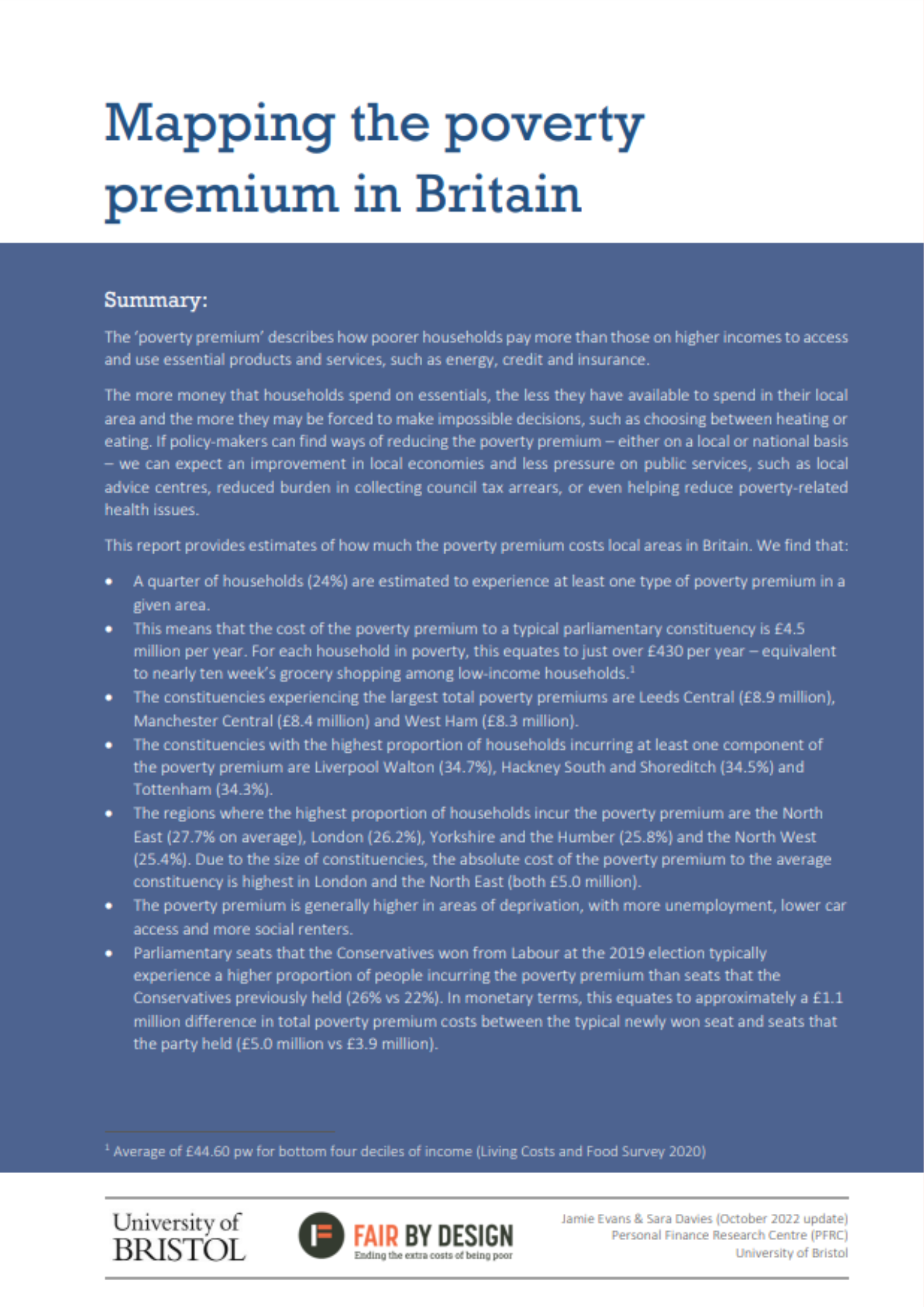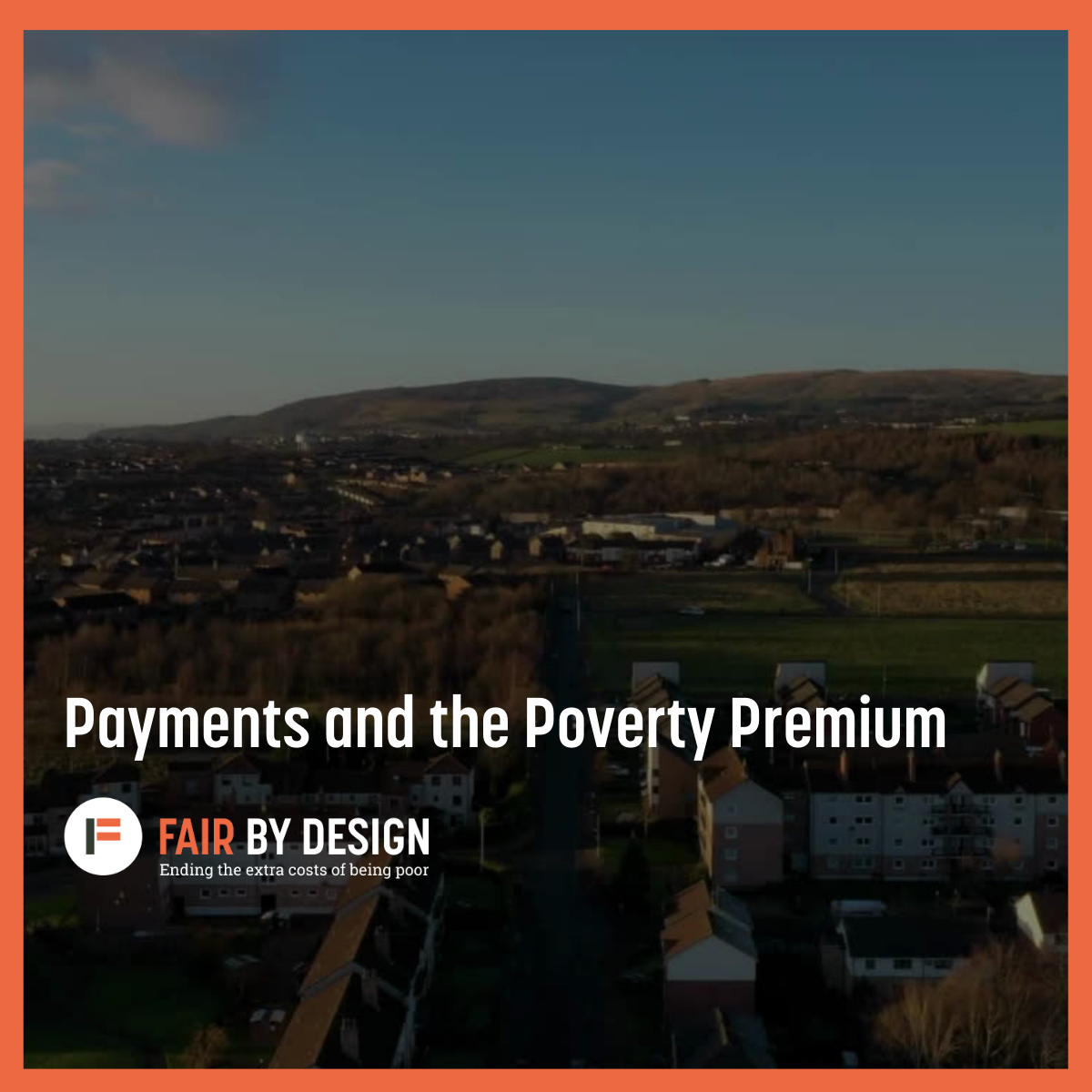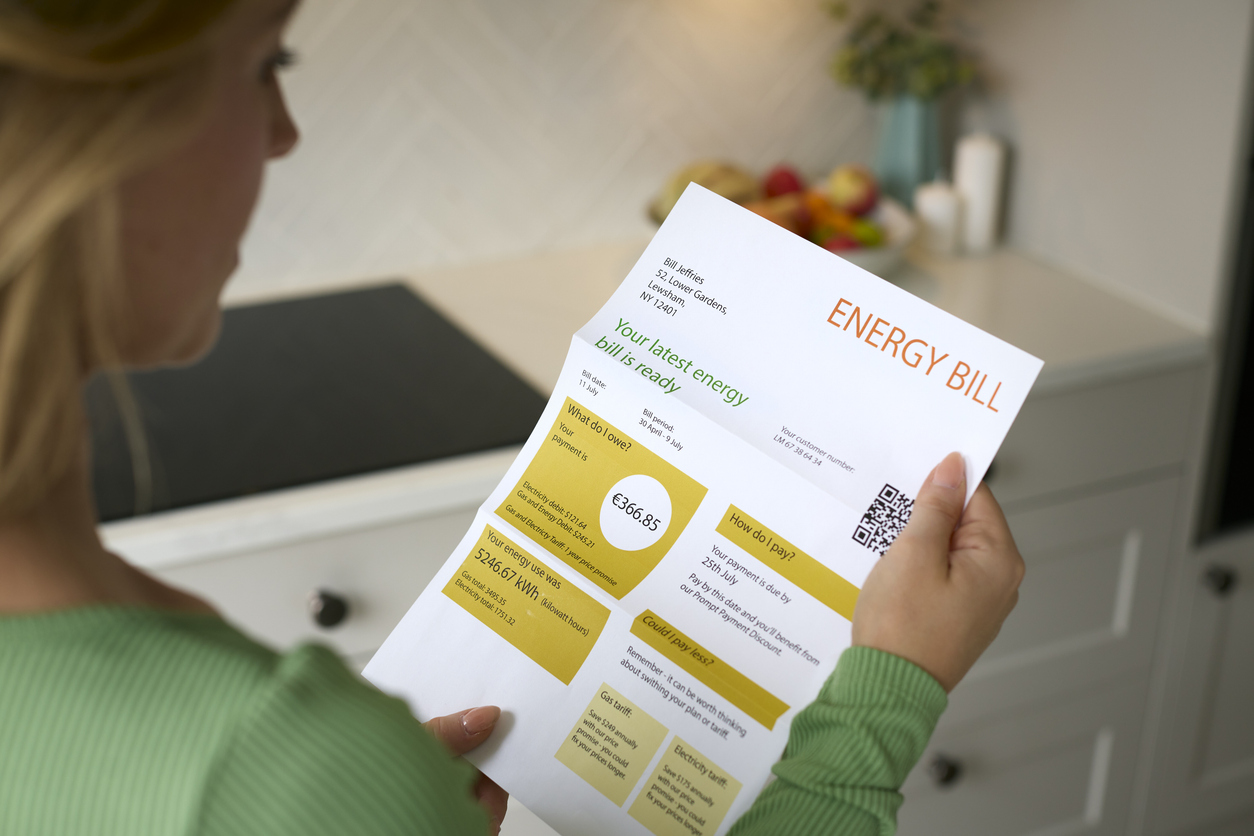Fair By Design collaborated with The University of Bristol Personal Finance Research Centre on a research project to better understand the causes and the economic impact of the poverty premium on a local level across Britain.
The poverty premium, the extra costs people on low incomes and in poverty pay for essential products and services, is having a huge impact on local economies and people’s pockets:
- A quarter of British households (24%) are estimated to experience at least one type of poverty premium.
- On average the poverty premium costs £430 per year for a low-income household.
- Each British constituency loses £4.5 million a year to the poverty premium.
- The North East of England has the highest proportion (27.7%) of households incurring the poverty premium.
What is the poverty premium costing your local area?
As part of the project we have created an interactive map which allows you to see the poverty premium in your parliamentary constituency.
The interactive map not only allows people to see the total cost of the poverty in your constituency but for the first time shows key data on a range of poverty premium’s. You are able to see the impact prepayment meter’s, insurance premiums and high-cost credit premiums have on local economies.
Martin Coppack, Director, Fair By Design, said:
“As families across Britain struggle with the sharp rise in the cost of living, taking action to end the poverty premium has never been more important.”
“Tackling the poverty premium is an easy way for the government to put money back into people’s pockets and it wouldn’t require any additional money from the Treasury.”
“People shouldn’t have to pay more for life’s essentials because they are on a low income. Industry, government and regulators need to come together to make sure everyone can access the products and services they need at a price that is fair.”
“As families across Britain struggle with the cost of living crisis, taking action to end the poverty premium has never been more urgent. Government intervention to eliminate the poverty premium would put on average £430 back into the pockets of over 3.5 million low-income households without requiring any additional funding from the Treasury.”
Sara Davies, Senior Research Fellow, The University of Bristol Personal Finance Research Centre, said:
“This research makes it easy to identify where the local focus of poverty premium elimination should be. By addressing these issues, millions of pounds could remain within local economies. This money could be spent locally, creating extra jobs and growing local businesses. Or it would ease financial difficulties for low-income households in the area and reduce the burden on local services.”






